What are we doing for people with autism?
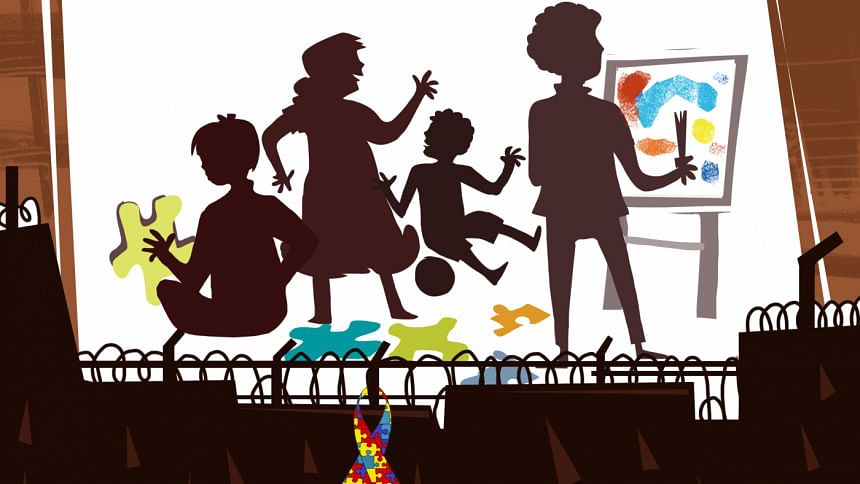
About April 2, World Autism Awareness Day, the UN's website says the day's purpose is to serve as a means to "affirm and promote the full realisation of all human rights and fundamental freedoms for autistic people on an equal basis with others." Reading this premise, I couldn't help but feel the tinge of tokenism attached to the big claims about acceptance and equality of people with autism spectrum disorder (ASD) in the context of Bangladesh.
In Bangladeshi society, the word autism is cloaked in layers of stigma. And even though the government has taken some steps to rectify this, parents are still profoundly lost about their next steps when they discover that their child has ASD. But has the government truly done enough for children and people with ASD and their parents? If so, why aren't there any state-funded schools for them? Does the government have a plan for creating an "inclusive" society for people with disabilities? What does this "inclusion" look like? Will we ever see people with ASD coming into the mainstream? Or will they be forever sidelined, with no recourse?
So far, the government has undertaken positive initiatives such as the Rights and Protection of Persons with Disabilities Act, 2013 and the Persons with Neuro-developmental Disability Trust Act, 2013 under the Ministry of Social Welfare, which was established to implement 24 different functions to improve the quality of life for people with ASD and other neuro-developmental disabilities (NDDs).
According to the ministry's terms of reference, published in 2021, the NDDP Trust has been working with a number of initiatives, including one on the establishment of service centres, a fully government-funded project, in different locations of the country. Each centre will work like a one-stop service centre comprising a multi-disciplinary team to provide services like early intervention, age group-based therapy, counselling, physical therapy, occupational therapy, speech and language therapy, psychosocial counselling, regular treatment, behaviour change, daily activity living, group therapy, parents and caregivers training, integrated services with special NDD schools and many others. The said team is supposed to include a physiotherapist, occupational therapist, speech and language therapist, clinical psychologist, medical doctor, nurses, etc. If this sounds too good to be true, I hate to break it to you that it is.
On World Autism Awareness Day 2022, the prime minister had announced the launch of two apps: Bolte Chai and Smart Autism Barta. Even though I questioned the utility of the apps to an average person residing in a village or marginalised community, I decided to download them anyway to judge for myself. In all honesty, the Bolte Chai app, although made with the intention of helping individuals with speech disorders or disabilities, looks like it was made by a first-year computer science student for a class project. The app is incomplete, with no text-to-voice features integrated for individuals to communicate personalised messages. It has a set of pre-selected messages only in English. The voice output is also in English, making the app completely futile to the masses who probably needed this assistance the most.
The second app, Smart Autism Barta, proved to be a lot more useful, with information such as the nearest health complex parents can access, care and health sections with a list of disability affairs officers and their contact numbers. Disability Affairs Officer Mohammad Ziaur Rahman, based in Mymensingh, said, "There are care and rehabilitation centres for people with ASDs and NDDs in 64 districts, with a total of 103 centres. Usually when parents reach out to us, we provide services such as autism screening, counselling for both parents and children, and based on the levels of assessment we refer them to the National Disability Development Foundation for further treatment. We even provide assistance devices to those who need it."
When asked if there is enough trained manpower to cater to the demands in this sector, he said, "We have 12 people at my centre. Of them, two are trained professionals—one audiometrician and one optometrist. The rest have been trained at various workshops."
Going back to the mandates set in the Persons with Neuro-developmental Disability Trust Act, 2013, weren't these centres supposed to be "one-stop service centres"? Where are the nurses, therapists, special educators, and physiotherapists who were promised for this facility?
Government services aside, private services for people with ASDs and NDDs are not faring that well either.
"The biggest problem is that we do not have enough external funding to support our staff or students fully. The training of teachers for children with special needs is expensive to bear. It's a challenge to convince a teacher, who will get paid a bare minimum wage, to receive training that may cost them anywhere from Tk 15,000 to Tk 25,000," said Tania Akter, a special educator at ALC Advanced Learning and Special School. Tania also mentions that she has experienced discrimination when she was hired on an ad hoc basis at regular schools, saying that she doesn't receive the same level of respect as a "regular" teacher because she takes care of children with special needs.
Aklima Chowdhury Asa, deputy manager at DRRA Amarjoti Special School in Bhatara said, "If these training were funded by the government, it would've relieved us a bit from our financial crunch. Many ASD and NDD children require epilepsy medication regularly. Since we cater to a marginalised community, most of these children's medical needs are not met due to a lack of finance. We also lack special assistive devices to help the children who suffer from physical disabilities."
In most cases, these practitioners witness how backward our society still is when it comes to autism acceptance. In many cases, it's mostly single mothers who are left to deal with these challenges all alone because their husbands left them.
The government, although well-intentioned in its endeavours so far, must pay attention to the discrepancies in the system. The first step is to launch a mass campaign, beyond World Autism Awareness Day, to actively ensure inclusion. This may include door-to-door counselling or dispersing useful information via mainstream media. The second would be to ensure that the finance being injected into the system is being utilised properly. Otherwise, no matter how many apps are launched, we risk remaining a country that advocates for inclusion only in the form of tokenism.
Nazifa Raidah is a member of the editorial team at The Daily Star.
Views expressed in this article are the author's own.
Follow The Daily Star Opinion on Facebook for the latest opinions, commentaries and analyses by experts and professionals. To contribute your article or letter to The Daily Star Opinion, see our guidelines for submission.
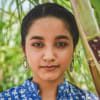
 For all latest news, follow The Daily Star's Google News channel.
For all latest news, follow The Daily Star's Google News channel. 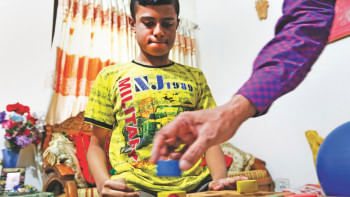
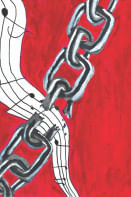
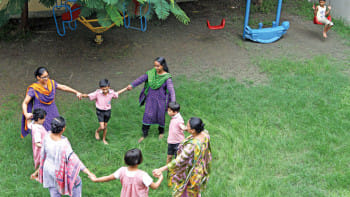


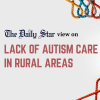

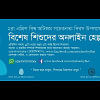
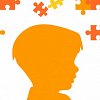


Comments